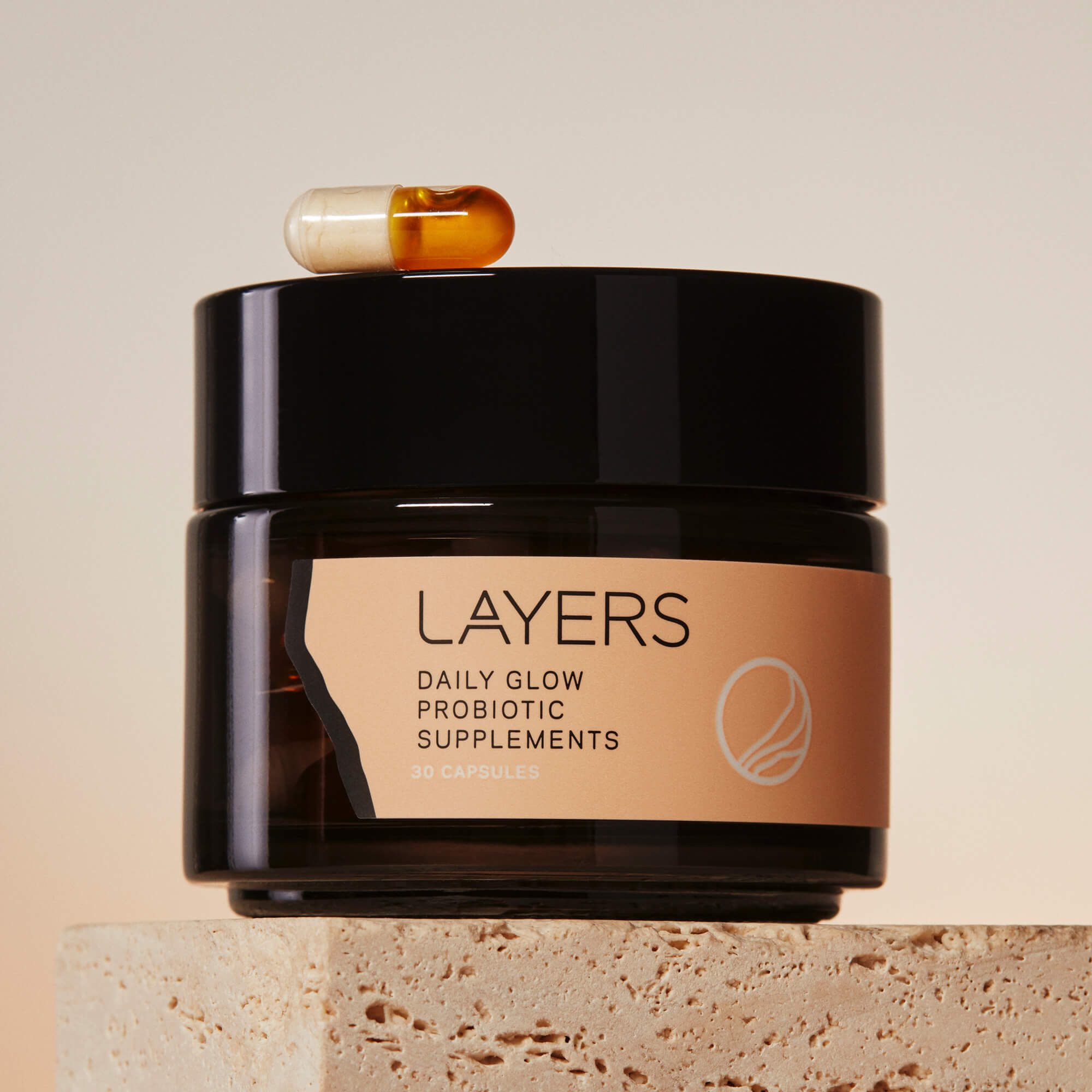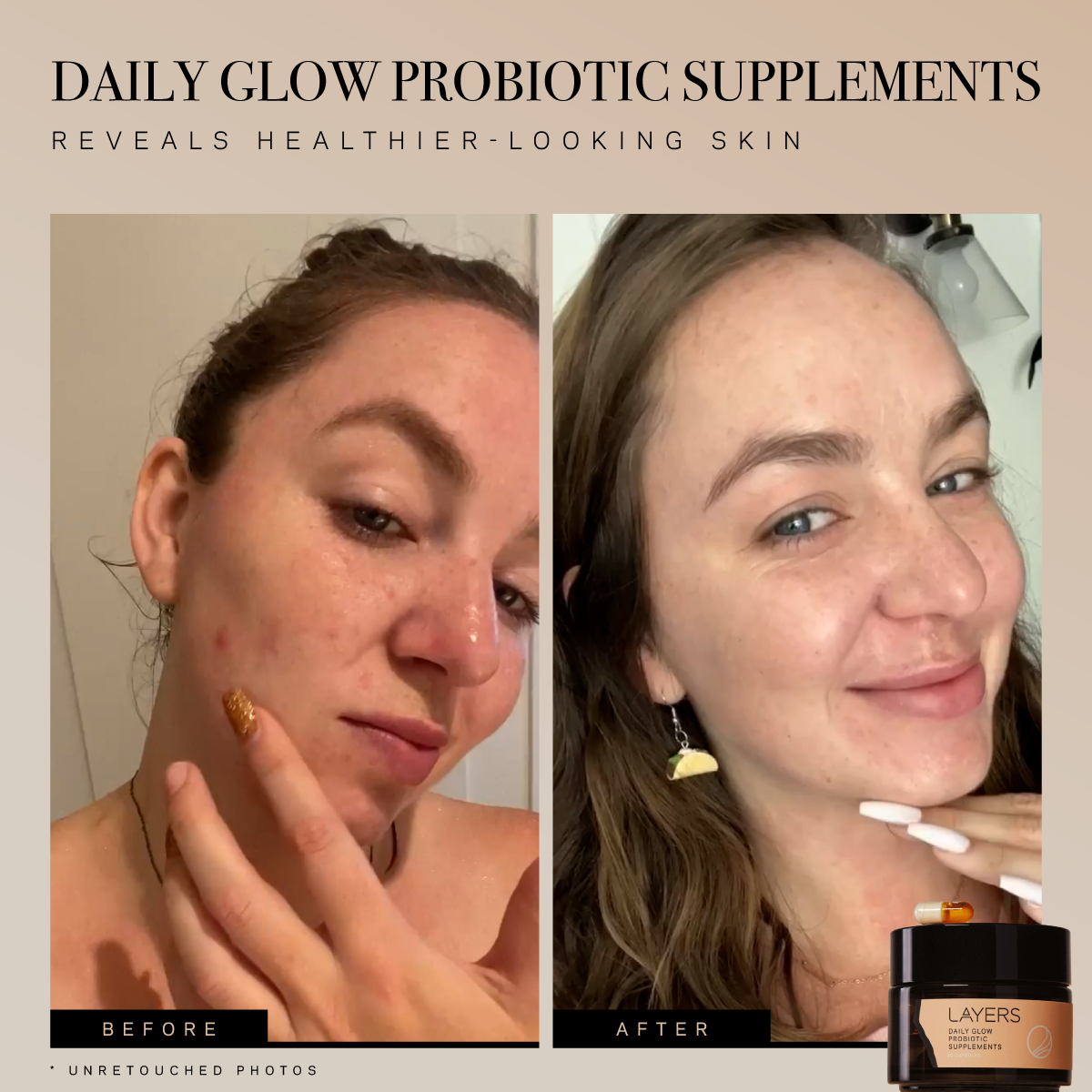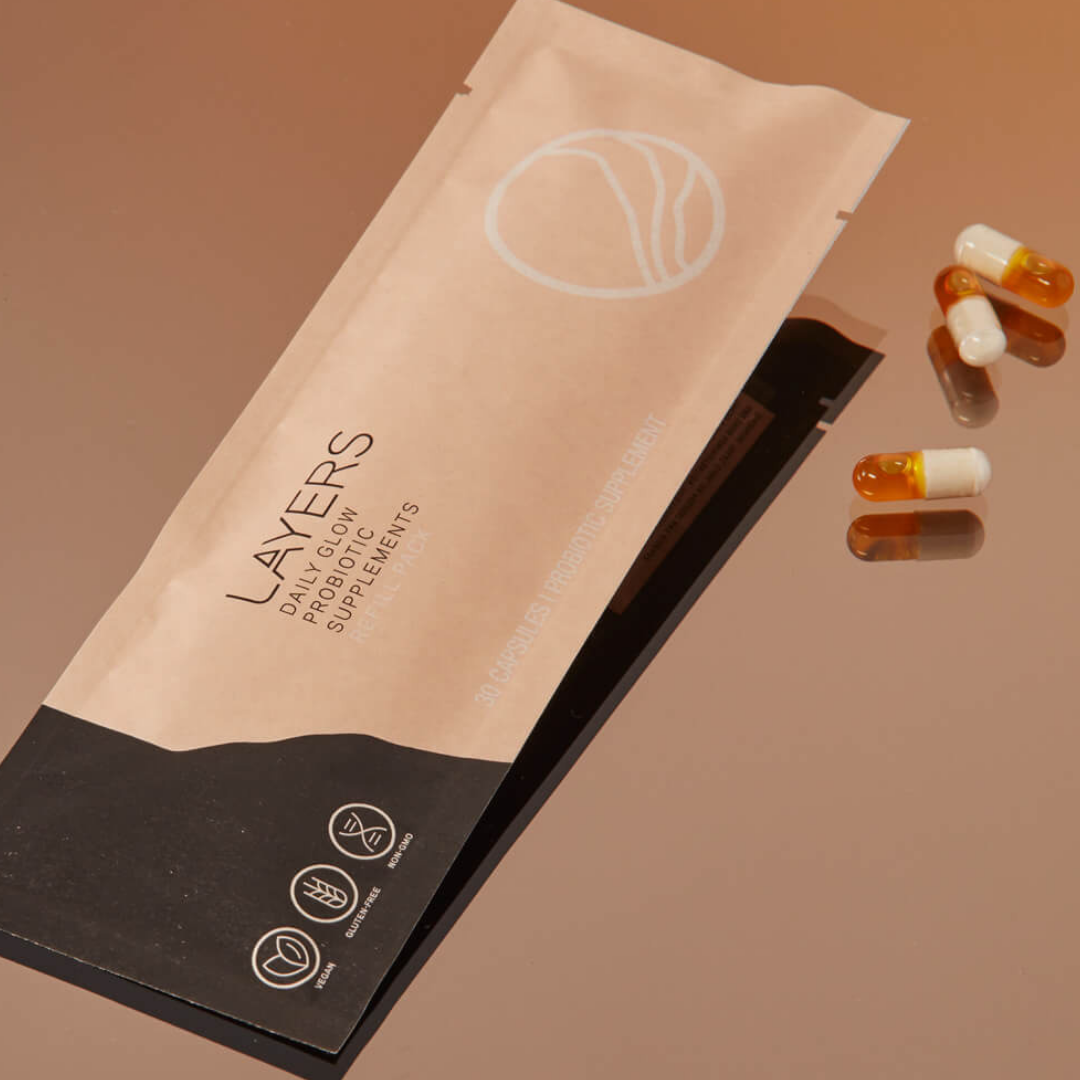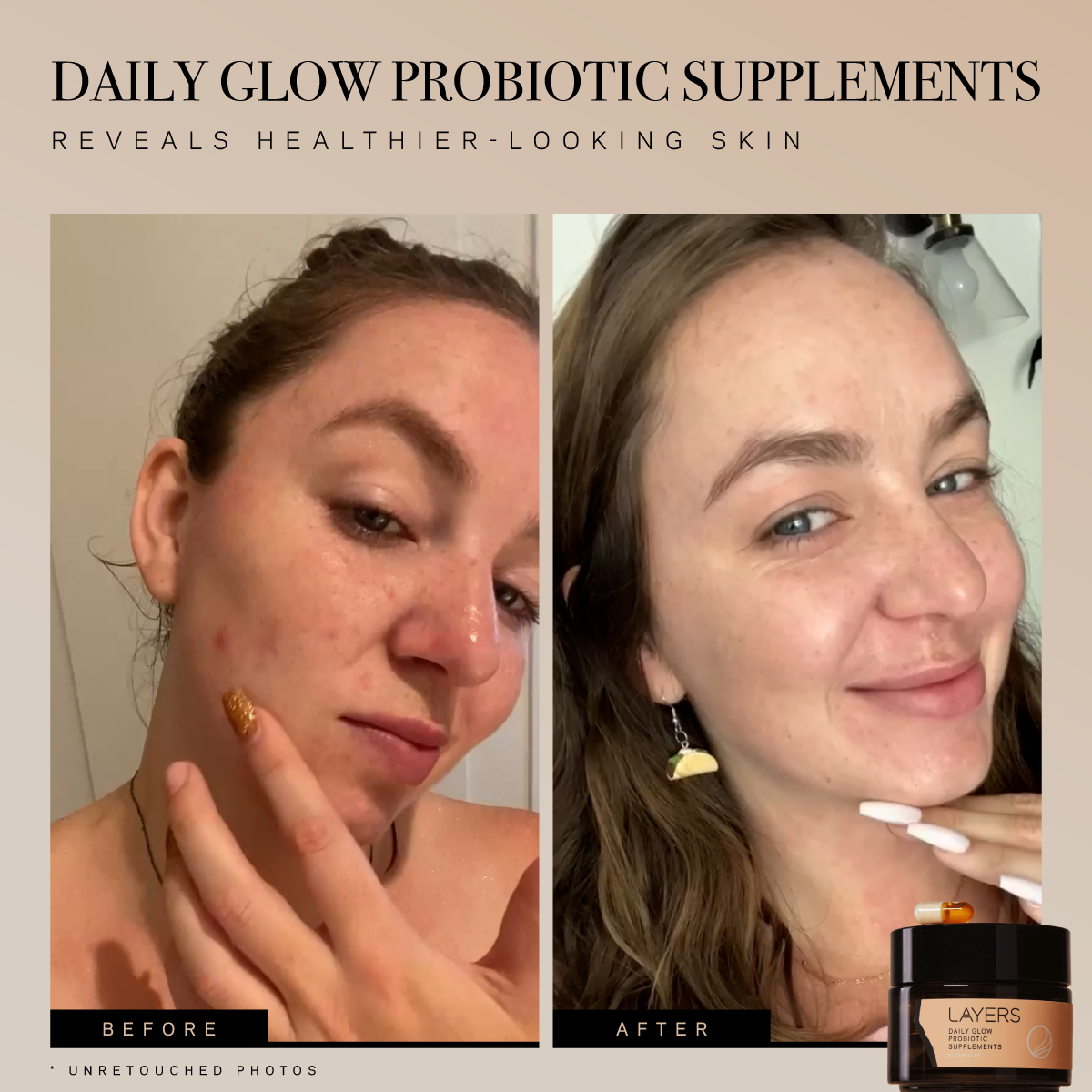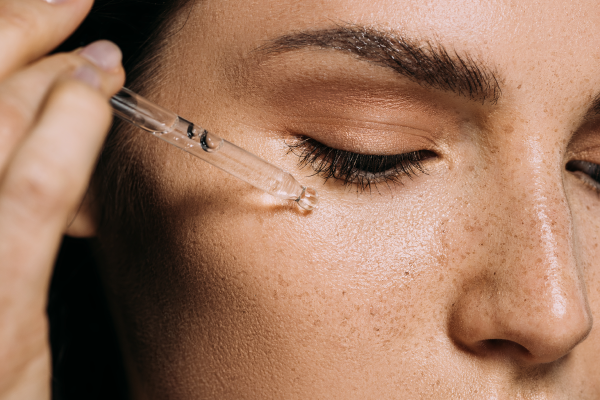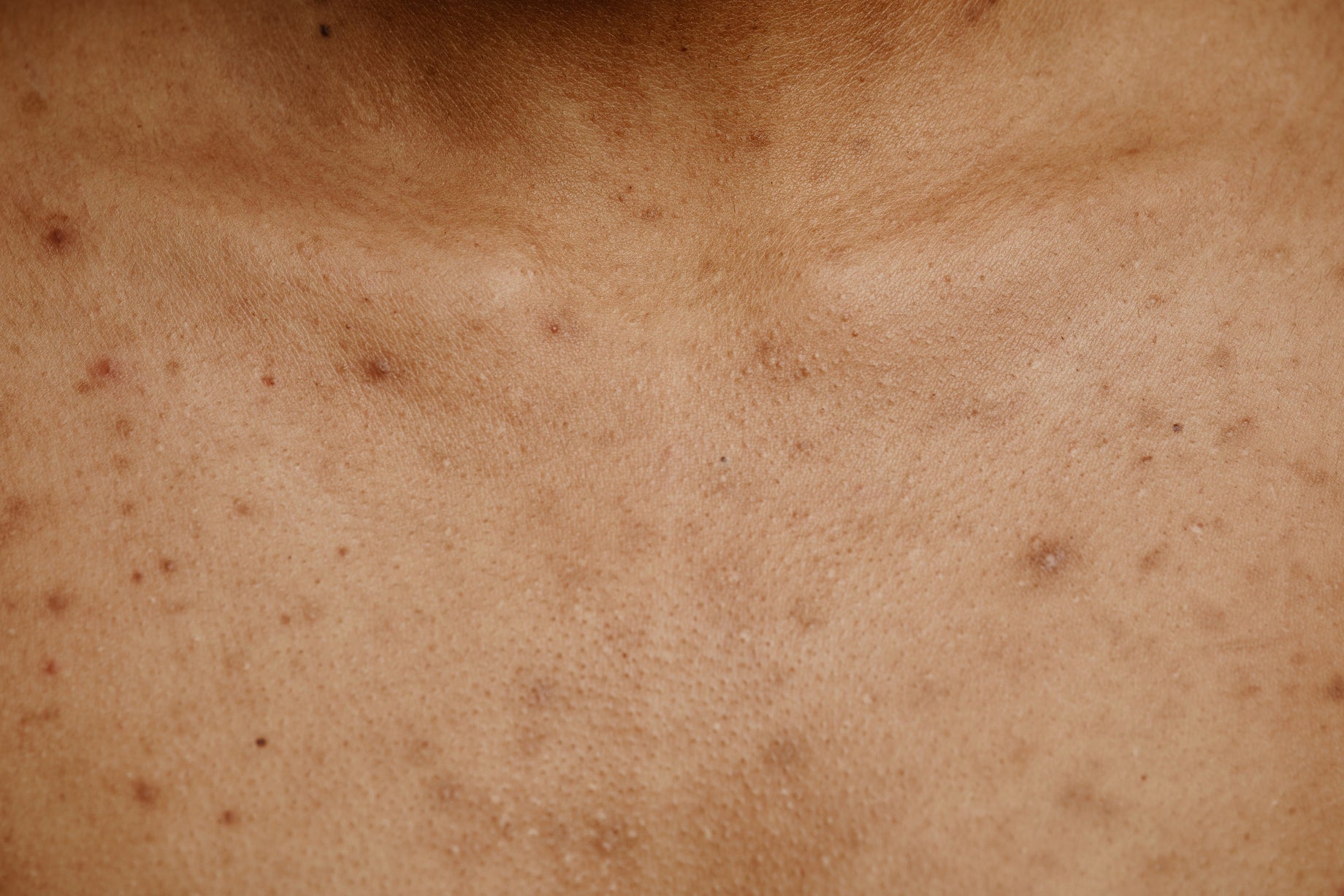Does your skin health feel out of whack? You could be dealing with a damaged skin barrier. Here’s how to repair it.
You’ve likely heard the term pH before. Maybe it was tossed around in some long-forgotten (or soon-to-be-forgotten) chemistry class. Or perhaps you’ve seen it printed on a label for shampoo or bottled water. Cool, “pH balanced,” it says. Sounds like a good thing. But what exactly does it mean?
WHAT IS SKIN PH?
The term pH is a system of measurement that’s used to identify the levels of acidity and alkalinity in something. It’s an important factor in the overall health of our body, including the skin barrier. A balanced pH means that your skin is functioning effectively to protect you from the elements. If it’s not in the right range, then you can experience discomfort in a variety of forms.
WHAT IS A HEALTHY PH FOR SKIN?
The pH scale runs from 1-14, with 7 being neutral. Anything on the lower end of the spectrum, or below 7, is considered acidic. Anything 7 and above at the higher end of the scale is alkaline. For example, water is a neutral 7, the pH of vinegar hovers around 3, and bleach has a pH of 13.
Exact numbers can vary slightly, but for most people, a pH range between 4.7 and 5.75 is the sweet spot for skin health. Naturally, it leans slightly acidic. Skin that has balanced pH levels will feel soft, healthy, and smooth.
If you suspect that your skin barrier is damaged, then checking your pH level is one way to identify what’s causing you trouble. For the most accurate results, your dermatologist will use a pH meter to determine where your skin is on the scale. But if a trip to the dermatologist isn’t in the cards right now, there is a simple way to understand which direction your skin leans. All you have to do is look in the mirror.
If your pH is too high: Signs that your skin’s pH is too high in alkaline include dryness, flakiness, and inflammation. This means that the protective barrier of your skin is being treated too harshly, stripping it of the essential nutrients it needs to keep things balanced.
If your pH is too low: If your skin’s pH is too low, that excess acidity manifests as oily skin. The overproduction of sebum means you’re easily prone to breakouts. To counteract excess oil, you’re probably relying too heavily on exfoliators, acidic peels, masks, or serums. Overdoing it with these products causes irritation.
WHAT CAUSES A DAMAGED SKIN BARRIER?
The integrity of your skin barrier depends on a bit of everything. It’s the environment where you live. It’s influenced by the pollution levels you’re exposed to on a daily basis. It’s also your lifestyle factors like diet, how much sleep you’re getting, whether or not you drink enough water throughout the day, and the skincare products you use.
HOW CAN I REPAIR MY SKIN BARRIER?
So you’ve identified the problem, but how do you fix it? Repairing a damaged skin barrier doesn’t happen overnight. It’s a process, but you will see changes in your skin health if you practice better overall health habits. This goes beyond diet because your skin is also an organ. So you have to consider what’s good for your
-
Eat a balanced diet: If this advice feels like it’s on repeat whether you’re talking about skin health, physical health, or even emotional well-being, there’s a good reason for that. The gut-brain connection is the direct relationship between what we eat, how we look, and how we feel. Gut imbalances affect our mood and our skin. And the reverse is true, too. A healthy, balanced diet helps diversify your gut microbiota, reinforcing your skin health from the inside out.
-
Use sunscreen daily: As if we have to keep hammering this sage advice into anyone’s head, but it bears repeating anyway. SPF is important. No matter the time of year, no matter your age, and no matter how much you want to slather on sunscreen every day, do it. It physically protects the outer layers of your skin from harmful UVA and UVB rays.
-
Ditch cleansers with harsh ingredients: Stick with labels that don’t have mile-long ingredient lists. Skincare products that don’t use harsh chemicals aren’t trying to hide anything, and more than likely, you’ll recognize what’s written on the label. Avoid products containing The Toxic 12 and your skin barrier will thank you.
-
Become a skinimalist: Believe it or not, your skin is a fully functioning organ and it knows how to do its job. The less we do to interrupt it, the better. That being said, we do live in a world with air pollution and we do deal with busy lives and more stress than we should. So cleansing daily and using gentle products that help reinforce the skin barrier are smart moves. The key is to keep it simple.
-
Check the pH of your shower and bathing water. You’ve heard of hard water, and if you’ve experienced it, then you know how it can weigh down your hair and make your skin feel dry. The best water for a balanced skin pH is soft. Soft water is non-alkaline and contains low mineral content. You can buy test strips to determine the pH of your water. Anything above a 7, you might want to consider investing in a water filter. Shower filters can be reasonably affordable and make a big difference.
When it comes to your microbiome, balance is everything. It’s a two-fold process that requires attention to both the inner workings of your gut and the external barrier. Your skin is a powerful defense mechanism that keeps you protected from the elements. When your barrier remains strong and balanced, pesky skin woes don’t stand a chance.

